‘Makes you wonder what could’ve been’: Matildas coach on World Cup defeat
Matildas assistant coach Melissa Andreatta has opened up on the challenges facing female coaches, why Sam Kerr is such a star and the rise of the extraordinary Matildas.
QWeekend
Don't miss out on the headlines from QWeekend. Followed categories will be added to My News.
All Melissa Andreatta can remember growing up is sport – playing it, watching it, loving every second of it. When she was 12 years old, she dreamed of one day winning an Olympic gold medal.
Fast forward to today and the assistant coach of the Matildas feels closer than ever to achieving her childhood ambition.
After the Australian women’s football team captured the hearts and minds of the nation during this year’s record-breaking Women’s World Cup, Brisbane-based Andreatta, 44, says they couldn’t help but feel disappointed with their fourth-place result.
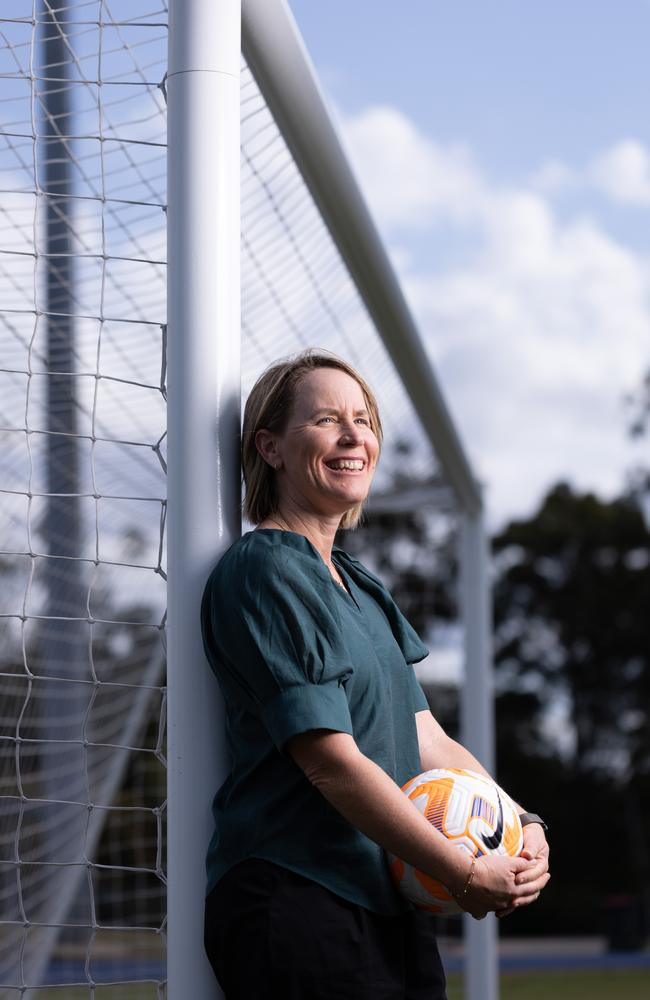
“We were so close to being in the final. We wanted it so bad and we were so prepared and believed so much in our ability. Football is a funny game – it’s about momentum and sometimes luck. It makes you wonder what could’ve been, but at the end of the day our opponent was the better team and we are proud we got to where we did,” she says.
But while the Matildas may have felt disappointed, they did not feel defeated.
With their sights firmly set on the 2024 Paris Olympics starting in July, they won three stunning victories against Iran, the Philippines and Chinese Taipei at the recent Olympic qualifiers in Perth.
Come February, they will continue on their path to redemption when they play home and away games against Uzbekistan in their final Olympic qualifying round.
“I feel re-energised and ready for the work ahead to play my part for the team to be successful. I want to win that gold medal for Australia,” Andreatta says.
Born and raised in Brisbane, Andreatta grew up in a house on a cul-de-sac across the road from Sherwood Arboretum’s sprawling parklands, on the city’s westside. On any given day, her parents would send her outside with her younger twin brothers to burn off some energy with the neighbourhood kids.
“Sport was a big part of our lives but not in a super-competitive way, more in a lifestyle way. If we weren’t playing cricket, football or league, we were swinging on a rope out into the river. It was a very active, outdoorsy childhood and I loved it,” she says.
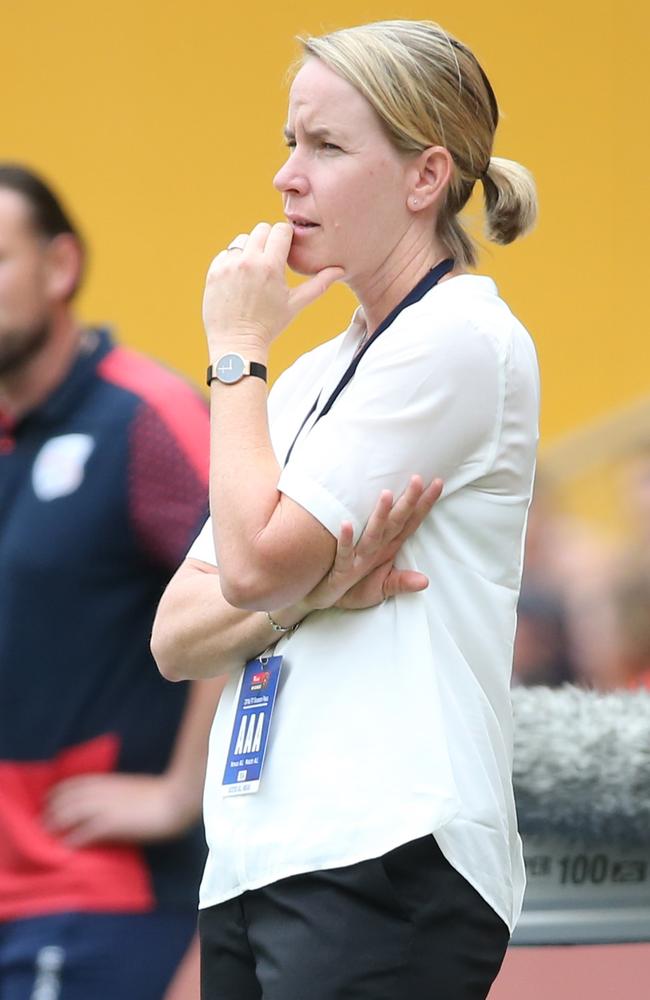
Her mother, Charmaine, was a teacher aide and her Italian father, Mario, worked four jobs at one stage including as a taxi driver, cleaner and at the Darra brickworks. “Dad’s a bit of a worker and I think maybe that rubbed off on me a little bit,” she says.
Like so many girls growing up in the eighties, Andreatta was told girls couldn’t play soccer. Instead, she watched from the sidelines as her brothers played.
“I remember one day turning to someone and saying, ‘Why can’t I play?’ and them saying, ‘You just can’t, love’,” she says.
A sports captain at both primary school and high school, Andreatta signed up to play netball at the Western Districts Netball Association in Graceville when she was 11. By age 15, she was making representative sides.
“Around the time of the Barcelona Olympics, I remember thinking, ‘Maybe I could go to the Olympics with this’, and then realising netball wasn’t an Olympic sport,” she says.
She liked netball, but something about it didn’t quite fit.
“I was very competitive on the netball court. The no-contact rule didn’t really suit me. I’m a very physical netballer and I was getting pinged all the time for contact. It used to frustrate me,” she says.
One day in ninth grade, her high school futsal team at Brigidine College in Indooroopilly was down a player. Andreatta was asked to play goalie and things kicked off from there.
“I loved throwing my body around, doing big dives, protecting the goal. I was a defender in netball as well,” she says.
The following year she was playing as a midfielder and when she graduated high school she joined the Taringa Rovers. It was during her first year at university while studying to become a physical education teacher that she was asked to trial for the Queensland Academy of Sport in the hope of one day becoming a Matilda.
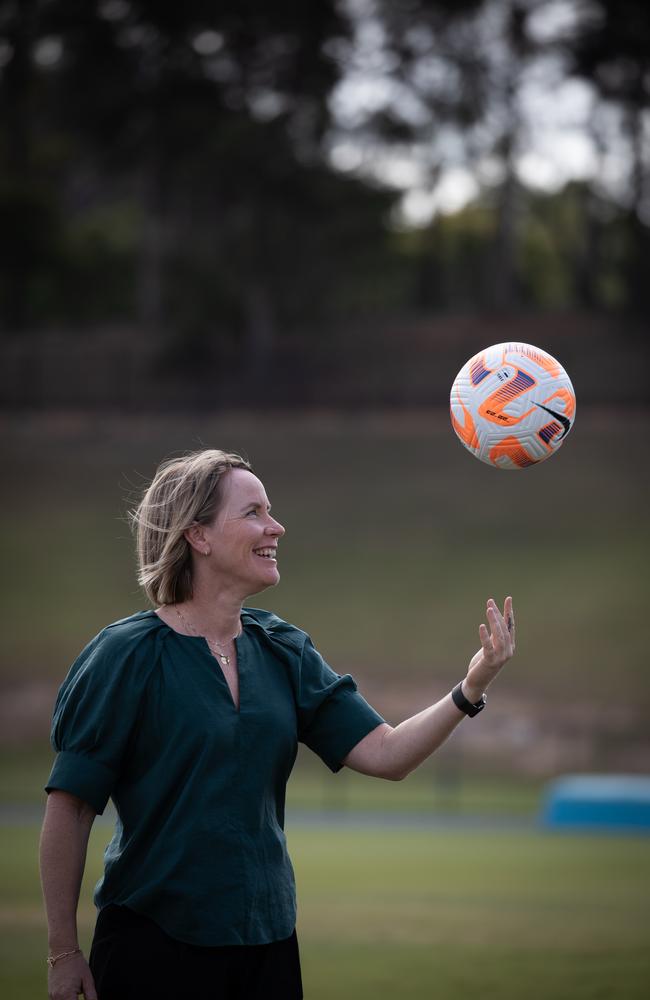
Before she got the chance and at the worst possible time, injury struck. Andreatta tore her anterior cruciate ligament (ACL) in her knee, putting her out of action for nine months.
“In those days, there was no medical support like there is now. I felt devastated and I think I became depressed. I wasn’t allowed to move for a month and I had to keep my leg straight and stay horizontal. It was hell,” she says.
She soon returned to the pitch and in 1999 joined The Gap Football Club to play in the top league at the time.
“The Gap was a massive women’s club and they were one of the first to have a women’s football academy. You could sign on as a senior player and have reduced fees if you coached the juniors as well. I liked that,” she says.
In 2000, as an aspiring athlete watching the Sydney Olympics, she felt a renewed desire to win gold. In 2003, she played for Northern NSW Pride in the Women’s National Soccer League and was invited back to trial with the QAS the following year.
But not all dreams come true.
“I did everything I could but I was told, ‘You’re not going to be a Matilda. There are too many good midfielders. Maybe you should think about coaching.’ I was really angry and I just didn’t believe it at the time. I went through a patch where I wanted to quit,” she says.
It was a conversation with her coach at The Gap, Rob Askew, that changed her mind.
“He said, ‘You can be Matilda-like here. You can train at the highest standards. We can make this how you wanted it to be for yourself, and you can help me start coaching here.’
“I had this desire to play a really fast, attacking, intense brand of football. When training at the QAS, I saw the highest of standards. You turned up to training and you had to work hard and compete. That’s what we created – a really competitive, high standard, professional club environment,” she says.

With Andreatta coaching, The Gap won the championship in 2007 and 2008.
Coaching had always come naturally to Andreatta. After graduating university, she got a job as a PE teacher at West Moreton Anglican College where she set up a football academy.
“In one way or another I’ve always veered towards working with people and helping them do something they didn’t think they were capable of doing. It makes me tick,” she says.
After eventually accepting she wasn’t going to become a Matilda herself, and finding fulfilment in coaching at WMAC, The Gap FC and later Cavendish Road State High School at Holland Park, she stopped playing and set her sights on becoming an elite high performance coach.
Over five years, she attained the necessary licences to do just that and is one of only a handful of Australian female coaches with a Pro Licence – the highest level of certification.
At a tournament where she was coaching a youth state team (and won coach of the tournament), Andreatta met the inaugural coach of the Brisbane Roar women’s team, Jeff Hopkins. He soon became a mentor and friend, and by the end of 2012 she’d started assisting him.
Over time, she worked her way up through the ranks at Brisbane Roar, becoming head coach of the youth team and eventually the senior team, succeeding Hopkins and Belinda Wilson.
“To become the head coach of a team I love so much, in my home town, was a dream come true. I was coaching players like Clare Polkinghorne, Katrina Gorry, Mackenzie Arnold, Hayley Raso – I was loving it,” she says.
From there, her coaching career took off. She got a scouting job for the Matildas at the Rio Olympics in 2016 that again reignited the flame to win gold – but this time as a coach instead of an athlete.
“It sparked a fire in me and made me hungry for more,” she says.
In 2018, she led Brisbane Roar to premiership victory. The following year, she became second assistant coach to Ante Milicic, just in time to take the Matildas to the World Cup in France and finish in fourth place.

When Tony Gustavsson was appointed head coach of the Matildas in 2020, Andreatta was finally offered a full-time position with Football Australia as first assistant coach.
She is also head coach for the Australian Under-23 Women’s National Team.
For 20 years, Andreatta juggled full-time school teaching with playing and coaching, often unpaid or for “petrol money”. A “yes” person who took every opportunity in soccer that came her way, she eventually learnt to be more selective in her pursuits to stop burning out. She can hardly believe it’s her job to do what she loves most. Now, she wants to make it easier for others to do the same.
In the course to get her first coaching licence, she was the only woman in the room of 16. Although things are different these days, she says there is still much work to be done to get more female coaches into the league.
“Our local leagues are being really strategic and purposeful in giving women more opportunities to become a coach or official and providing structured pathways towards that. We want to keep all the good men and bring more women to the game and have those diverse experiences and perspectives to help us get better,” she says.
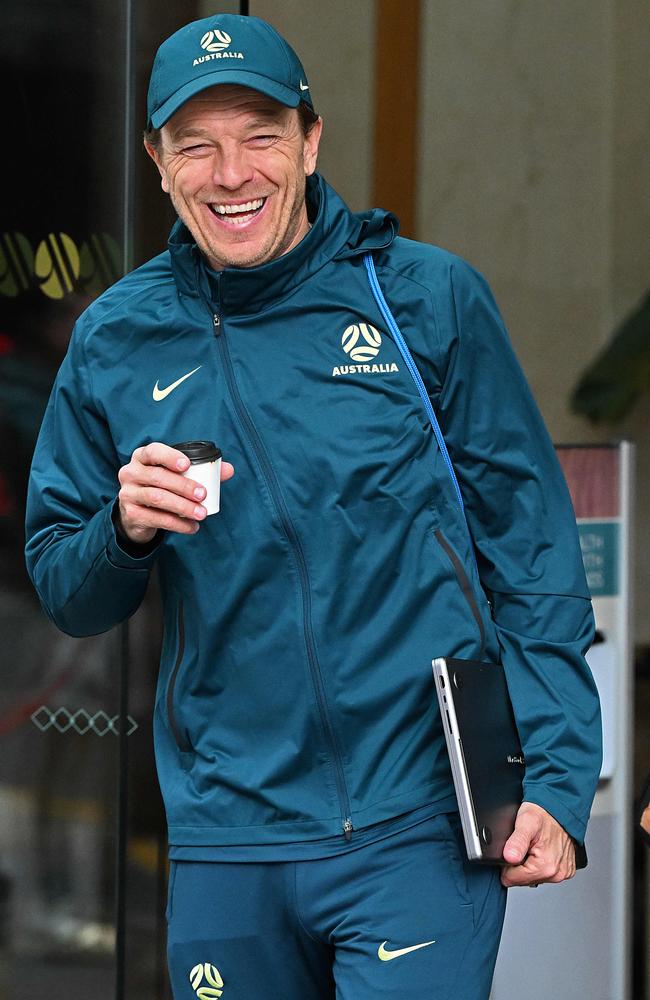
Alongside that mission, she has unfinished business with the Matildas.
“That kid that wants to be an Olympic gold medallist is still in me. I believe with this group, anything is possible,” she says.
Q&A
What is Sam Kerr like to work with?
Fantastic. She’s got this X factor, this energy that draws people in. She’s super caring and gives everything for her team. She’s so down to earth, funny, cheeky, very strong-willed and clear on what she wants and how she wants to do things. I’d go to war with her. She’s a top human.
What have you learnt from Tony Gustavsson?
He brings passion to his presentations and he’s a great storyteller. That’s been really impactful.
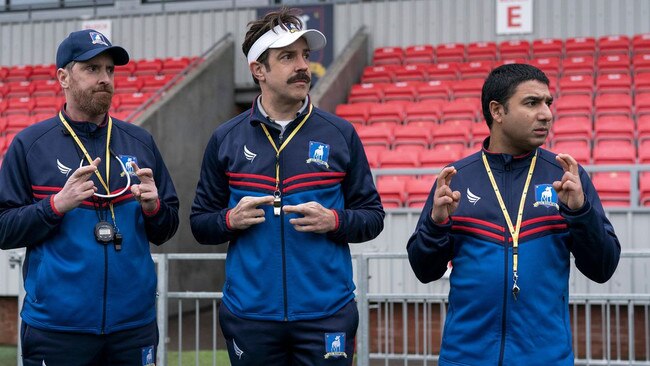
What are your tips for young soccer players?
Play with your mates and have fun, then as you get older find a club in your community that feels like a second home, where you can keep having fun, learn something and feel encouraged by your coaches.
Did you watch Ted Lasso?
Yes! Some of Tony’s sayings are like Ted Lasso, but he knows a hell of a lot more about football than Ted. I love it. “Whi-stle!”




